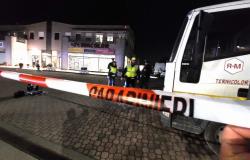
The Council of Ministers has approved a law decree which aims to map old abandoned mines and new possible deposits of critical raw materials, and at the same time to make the procedures for opening an excavation much quicker. The bill on economic activity in space was also passed.
In today’s Council of Ministers the government passed a law decree which accelerates the timing for the opening of mines in Italy. It should mostly be old mines to be recovered, which were abandoned when much value was not yet given to materials which today are considered strategic. But it cannot be ruled out that new mines could also start, on the contrary. The law, presented in a press conference by the Minister of Business Adolfo Urso and the Minister of the Environment Gilberto Pichetto Fratin. The legislative decree comes to adapt to the European regulation on critical materials, launched in March 2024, and it is no coincidence that the government has been working on it since at least April. The EU regulation aims to strongly increase European production and processing of “critical raw materials” by 2030.
What does the decree provide for reopening mines in Italy?
The legislative decree plans to launch a national exploration program, which will be managed by the Ministry of the Environment (in particular by the Higher Institute for Environmental Protection and Research) and will be financed with three and a half million euros to update the national mining map . A list will be drawn up of the abandoned mines – whose waste materials could prove valuable today – but also of the areas where new mines could be built. “We have large deposits, for example between Piedmont and Liguria there is a large cobalt deposit. Then we will have to see the extractability conditions, to be evaluated on a case-by-case basis”, said Minister Pichetto. “The technology, both for exploration and extraction, has completely changed today compared to a few decades ago”, commented Urso.
“Of the 34 critical raw materials set by the EU, we have identified at least 15 in our territory, according to the old maps”, underlined Pichetto. These are raw materials such as nickel, lithium, rare earths and cobalt, which are used to make products such as photovoltaic panels and batteries for electric cars. “We must not go from subordination to Russian coal to one subordination to critical raw materials and Chinese technologywhich today has a monopoly on processing”, said Urso. “Today 66% of cobalt is extracted in Congo, then exported to China which processes it, and then it is sold to us”.
What will the Meloni government do to resolve the chaos on the Redditometer
How long will it take to open new excavations
The procedures for obtaining theauthorization to dig. According to the European regulation that the request for extraction should last a maximum of two years, the government will aim to bring the time to 18 months. “Today the average in Europe is 9-12 years, in China it is three months,” commented Urso. For processing and recycling, the maximum duration should be one year and Italy will aim for 10 months.
In the decree, the rules on the tariffs that those who obtain a mining concession in Italy must pay also change. Today the old rules set fixed sums – rather low – for each hectare of land, while in the new system “a regime of royalties, as happens in Basilicata with oil: from 5% to 7% of the revenue will be divided between the State and the Regions. What was once not a productive asset has now become precious. It is right that the State, together with local authorities, can derive benefits for all citizens.”
The bill on economic activities in space
The same Council of Ministers has yet approved a framework bill on space. It is a bill connected to the maneuver, which “regulates the activity carried out in space both by Italy and by Italian citizens or companies”, explained Urso. Italy, “despite being one of the great space players, with the first launch carried out 60 years ago – we were the third country in space after the USA and the USSR -, did not yet have a national law on space”, underlined the minister.
Today, “not only state actors but increasingly private actors are going into space”, continued Urso. “What used to be a useful rule is now absolutely necessary.” It is planned to “draw up a national plan for the space economy”, and “a multi-year fund for the space economy of 150 million euros will be created, which will help small and medium-sized businesses to support their activities”. Since it is a bill, however, the text will now pass to Parliament and will take longer.





